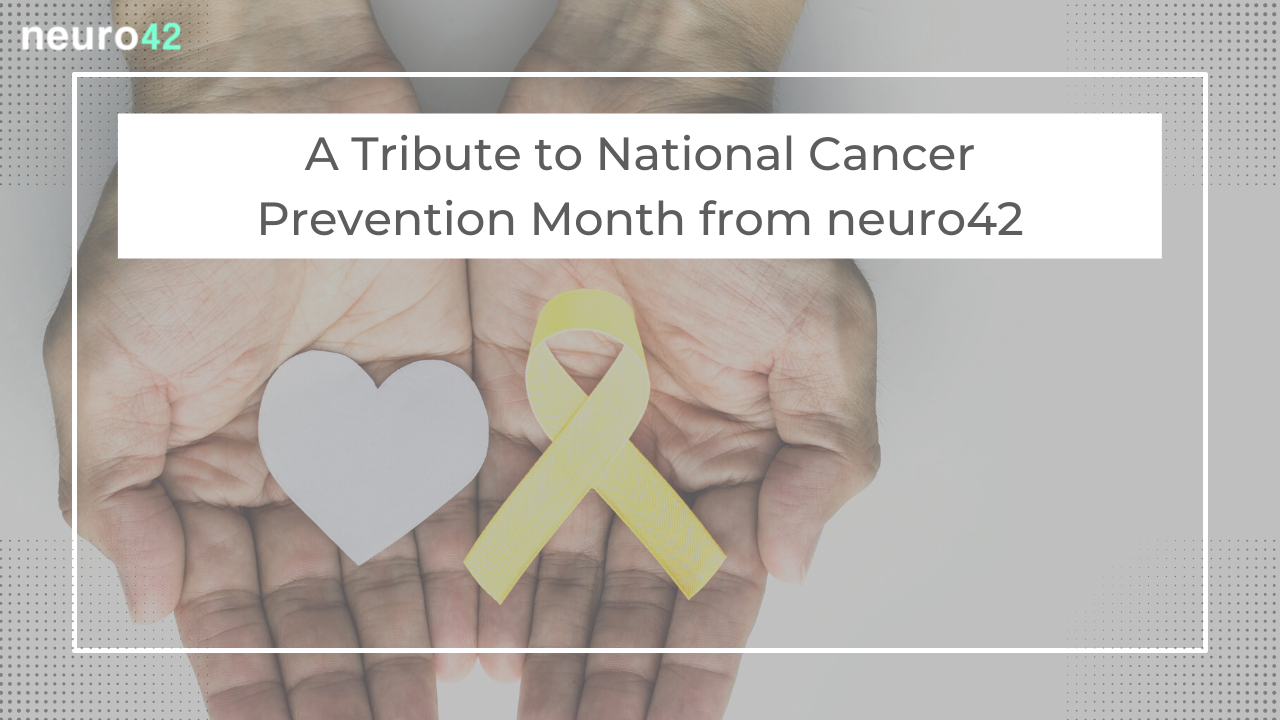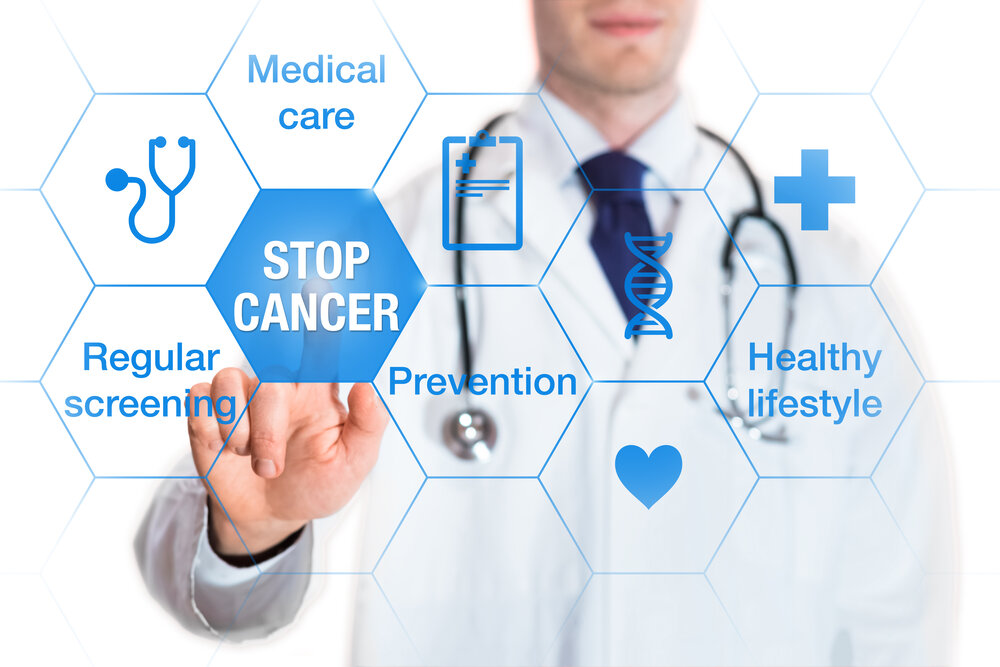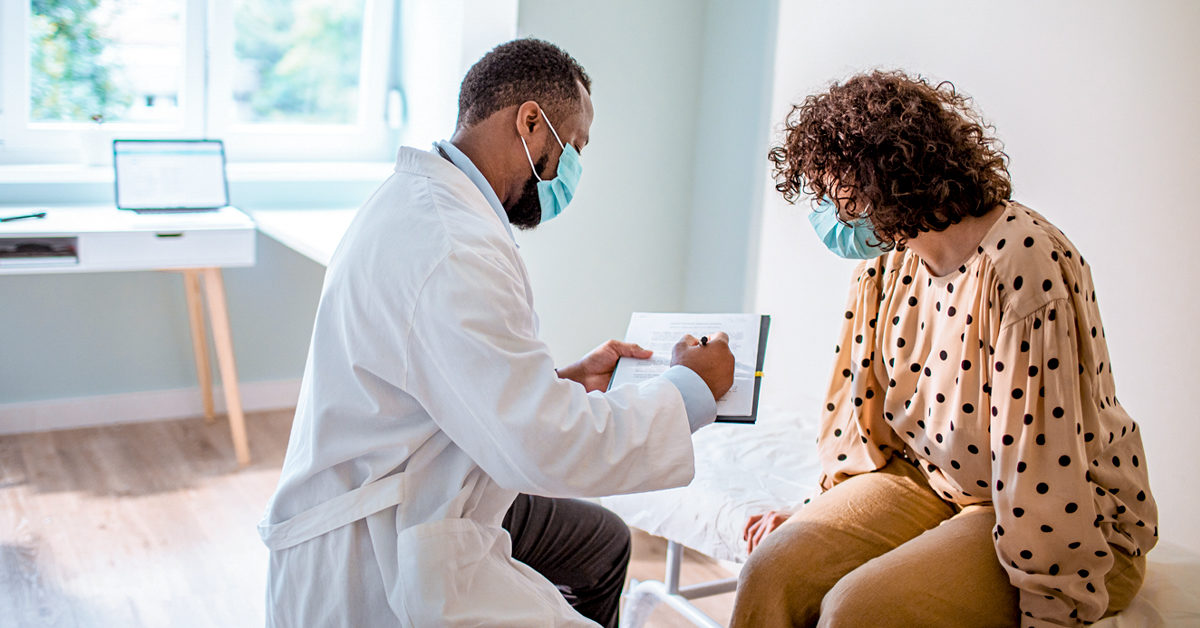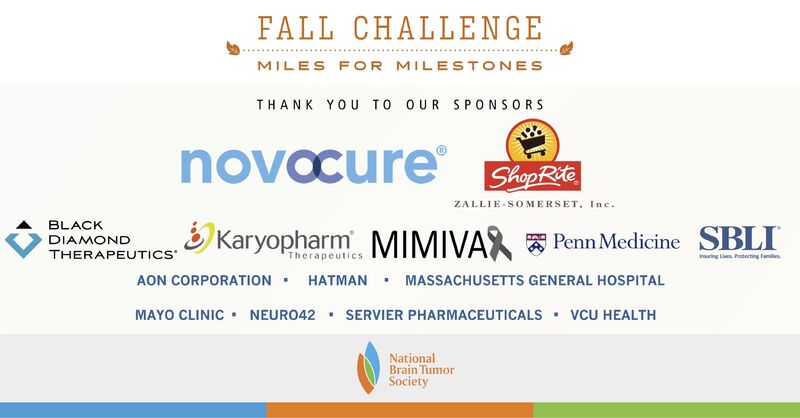A Tribute to National Cancer Prevention Month from neuro42

For decades, anti-smoking groups have taken aim at Big Tobacco, publishing bold and brash advertisements depicting the negative consequences of smoking—the worst of which includes cancer and death. And, to the credit of those groups, these fact-focused campaigns have made a significant difference.
From 1965 to 2018, cigarette smoking rates among adults plummeted from 42.6% to just 13.7%. And though lung and bronchus cancer rates peaked in the early 1990s, the rate of new cases has consistently dropped ever since as anti-smoking groups intensified their efforts. While we’re always happy to see cancer rates fall, the bigger picture here is the effect a concerted campaign can have on public health. Today, we wanted to highlight a timely event taking place this month and one that’s near and dear to our hearts: National Cancer Prevention Month.

What is National Cancer Prevention Month?
National Cancer Prevention Month is an annual movement promoted by health and cancer advocacy groups to raise awareness and money toward fighting cancer and continuing research. It’s important to note that there are no certain ways to prevent cancer, but there are risk factors one can avoid to reduce its likelihood.
According to a study conducted by the American Cancer Society and published on CancerNetwork.com—the home of the journal Oncology —more than 40% of newly diagnosed cancers in the U.S. are avoidable. To put some context around that number, that equates to about 750,000 cases.
Methods of cancer prevention
Most aspects of cancer prevention can be classified as general healthy living. We mentioned cigarette smoking earlier, and avoiding the use of tobacco is on the top of most physicians’ lists for cancer prevention. As the Mayo Clinic reports, smoking has been linked to cancer of the lung, mouth, throat, larynx, pancreas, bladder, cervix and kidney, while chewing tobacco is associated with cancer of the oral cavity and pancreas.

A healthy diet consisting of ample fruits and vegetables, along with whole grains and beans, and limited amounts of alcohol and red or processed meat is best. Mayo Clinic also suggests that women could lower their chances of developing breast cancer by eating a Mediterranean diet rich in extra-virgin olive oil and mixed nuts.
Other elements of cancer prevention widely suggested include remaining physically active, protecting yourself from the sun and generously applying sunscreen when outdoors, avoiding risky behaviors, and receiving regular medical care.
One of the most important aspects of proactive healthcare and cancer prevention is following your doctor’s advice on screening tests. While mammograms for breast cancer and prostate-specific antigen (PSA) tests for prostate cancer are commonly known, there are many different screening tests available that aren’t as heavily publicized. If needed for your situation, your doctor can talk to you about screening tests for cancer of the colon, ovaries, testicles, thyroid, bladder, skin and other bodily functions.

Collectively, we can make a difference
It wouldn’t be National Cancer Prevention Month if we didn’t highlight some groups whose efforts are making a meaningful impact within the cancer community. Near and dear to our hearts, the National Brain Tumor Society (NBTS) has funded some $38 million in brain tumor research grants and awards to researchers around the globe in the hopes of ultimately finding a cure for brain tumors. We’re proud to say that we partnered with NBTS in October for Miles for Milestones, a challenge that raised $950,000.

Another group focused on brain tumors, the American Brain Tumor Association, has doled out more than $33 million since 1976. Primarily funded from personal donations, the American Cancer Society has invested more than $5 billion in research grants over the last 75 years. And the American Association for Cancer Research has awarded more than $460 million in grants since 1993.
In celebration of National Cancer Prevention Month, we encourage everyone to donate to the cancer research group of their choosing. A cancer-free future is possible, but not without your help and the help of movements like National Cancer Prevention Month.
